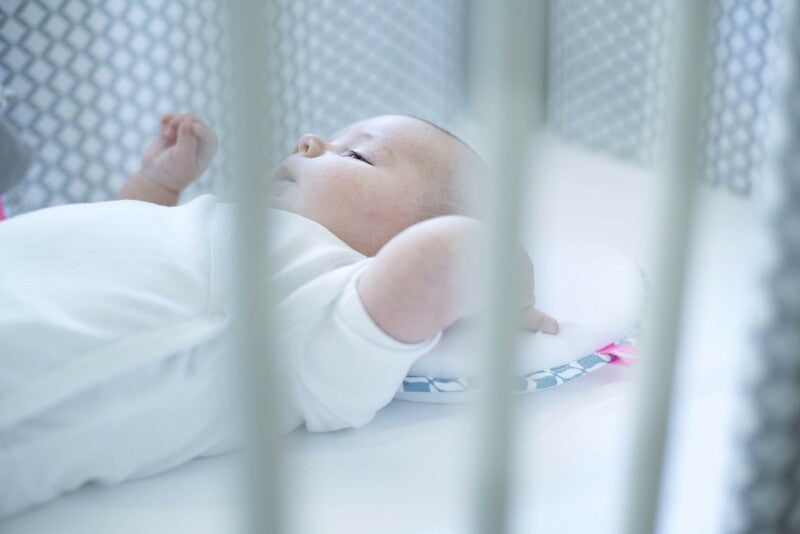How to teach children order: tips.
How many times have you wondered why your boy or girl at school is so careful to tidy up the games, colors, drawings and at home just say the phrase "Tidy up!" that the uproar breaks out?
It's always the same story every time! or We are the usual! These are just some of the phrases that parents repeat when dealing with their children who just don't want to help put their things in order. Why is it so difficult to teach children order? Above all, is it really difficult ?.
Teach autonomy
Let's start by saying that autonomy is one of the great achievements of childhood. In fact, making children aware of their abilities and skills to direct them towards a just independence is fundamental.
The order in itself represents not only seeing the house in a certain way, but it also means teaching the child that objects need a precise location. On a mental level, the external order greatly helps the internal one of the subject.
Lead by example
As we often say, it is taught first of all by example. By observing adults, children acquire certain skills, nothing is there by chance, they know that games must be stored in certain spaces and not left in the middle of the room with the idea that someone will do it for them. Same thing goes for the little books, the clothes or the colors, in short, everything related to the world of children.
It is important, to make children understand how necessary and functional order is, that the adult does not intervene with threatening phrases such as "Tidy up or I'll get angry!", "Fix the games otherwise I'll throw them away!". When we are dealing with children we know that words have a weight, and patience is always there ready to explode. However, if we want to be listened to, we must strive and implement some strategies that can work in our favor, but also teach children to collaborate and be more respectful towards others and their objects.
Teaching the sense of order from an early age
First of all it is good to make children understand the sense of order from an early age. Getting them used to storing, for example, the constructions in a specific container and that it is always and only that helps the little ones to an initial cataloging which, in reality, anticipates by a few years the concept of togetherness that will then be addressed once primary school has begun. . In fact, reasoning in sets is much more comfortable for adults too.
For example, you could use containers of various colors and on the outside stick, with the help of your child, a design that corresponds to the content. In this way the association for objects and order occurs through a first visual channel: the child knows that if there is a construction drawing he will understand that all the objects with those characteristics will be placed in that box. This is what happens in kindergartens, each type of toy is collected in specific containers.
It is natural to say that the containers must be at child's height, otherwise if placed in an inaccessible space it will be difficult to make a contribution.
Don't rush
It is also important that the reorganization take place without haste. Having the house perfectly tidy and immediately is the dream of all mothers, it would be enough to snap your fingers to Mary Poppins and everything would return to its place, but reality, we know, is something else! However, what the adult could do to achieve the same result is to act without rushing the child, using a calm but decisive tone of voice, keeping the goal clear. Priority must not be given to the time taken, but to sharing something together and the result, avoiding quick gestures just because you have to hurry.
As for books, however, it is clear that they cannot be kept in containers and thrown away without a logical link. It would be a good idea to get a small bookcase with shelves suitable for children so that you can place the books with the cover facing the viewer. In this way, children can easily choose the book to browse, especially if they are small and need the image on the cover to be able to take it.
These are small useful tips to help children grow up responsibly from an early age. Raising your voice, calling them constantly to fix the games or the room can only have the opposite effect. Maybe they will too, but you certainly wouldn't have a smile on your child's face or yours.
Give sincere compliments
Sometimes they surprise you and without saying anything they start to tidy up, this is because they don't like living in disorder either. As was said at the beginning, the mental order passes from the external one and vice versa. Give sincere compliments the moment you see the commitment because it really is doing something for him or her and for the family, avoiding sarcasm or jokes like "Oh, but look who decided to help!" you would only get the opposite effect.
Create a weekly cleaning plan
We could create, preferably together, a sort of weekly plan for cleaning or help around the house in general. At the end of the week if every task has been completed there will be a reward ... better avoid spending money on games, but focus the reward on something that can unite you even more, like going for an ice cream, going for a walk, going on a bike, watching a movie together or reading a book.Educating is not easy and, as we have said many times, there is no magic formula for the perfect parent, but surely through collaboration, example and sharing you can get a lot from their children
.






Leave a comment